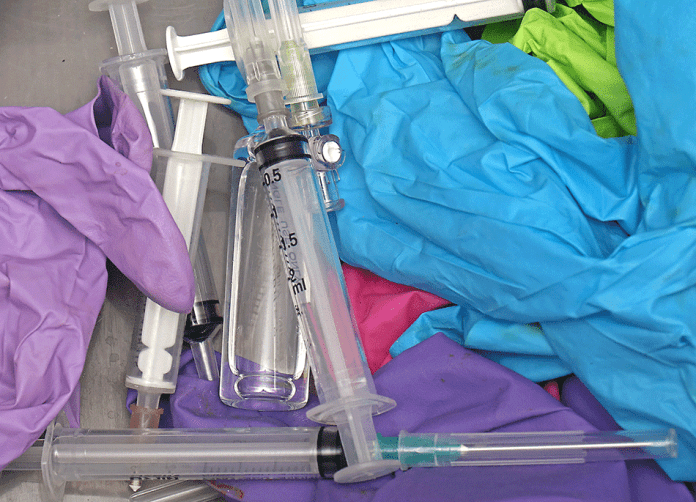In a world increasingly gripped by environmental concerns, the medical industry stands at the forefront of both challenges and opportunities. When we think of medical advances, our minds often journey to life-saving treatments and innovative surgeries. Yet, there’s an unspoken hero quietly revolutionizing the sector: modern technology for medical and sharps waste reduction. For business professionals, understanding these technologies is not only essential for environmental stewardship but can also offer a competitive edge. Dive in as we delve into the transformative ways the medical field is embracing sustainability, with Houston leading the charge.
1. The Gravity of Medical Waste: A Global Concern
Medical waste, spanning from used needles to discarded pharmaceuticals, has long presented an environmental dilemma. Every year, an alarming volume of such waste enters our environment, threatening both human health and ecological balance. According to the World Health Organization, developing countries see 85% of their medical waste discarded untreated, causing serious environmental damage1. The need for effective medical waste management is clear, and innovation is paving the way.
2. Pioneering Medical Waste Reduction Technologies
Advancements in medical technology have brought forth a slew of innovative methods to minimize waste. From on-site sterilization units that render waste harmless to advanced recycling techniques for sharps, the solutions are both varied and promising. For instance:
- Microwave Treatment: This method uses microwave radiation to disinfect medical waste. It’s effective against a wide range of pathogens and doesn’t require any chemicals, reducing secondary pollution.
- Plasma Pyrolysis: A technology that decomposes organic waste using a plasma torch. It converts waste into reusable byproducts and drastically diminishes waste volume.
3. Houston’s Approach to Medical Waste Management
Houston, as a major urban center, has long grappled with medical waste management. With the help of companies such as medical waste disposal Houston, the city is adopting cutting-edge technologies and setting an example for others. By integrating best practices and leveraging modern solutions, Houston is minimizing its environmental footprint and ensuring a safer community.
4. Advantages of Modern Medical Waste Management
Embracing modern technologies for waste reduction isn’t just about environmental benefits; there are practical advantages for businesses as well:
- Cost-Efficiency: Adopting efficient waste management can lead to significant cost savings in the long run. When waste is reduced or repurposed, disposal costs diminish.
- Improved Reputation: A company’s commitment to sustainable practices can boost its reputation, instilling trust among clients and stakeholders. This is particularly important in today’s socially conscious marketplace1.
- Regulatory Compliance: Modern waste management technologies often align with or exceed environmental regulations. This proactive approach can prevent potential legal issues or fines.
5. The Role of Digital Transformation in Waste Management
Digital technology is playing an increasingly pivotal role in enhancing waste management:
- Data Analytics: Leveraging data can provide insights into waste production patterns, helping institutions make informed decisions about reduction strategies.
- Internet of Things (IoT): IoT devices can track waste containers in real-time, ensuring timely pickups and efficient routing, ultimately leading to reduced emissions2.
- Smart Bins: These bins can sort and even compact waste, optimizing disposal and facilitating recycling.
6. Challenges in Adopting New Medical Waste Technologies
Despite the evident benefits, transitioning to modern waste management technologies isn’t without its challenges:
- High Initial Investment: The upfront costs for some technologies can be substantial, deterring smaller institutions.
- Training and Adaptation: Introducing new systems requires staff training, which might face resistance due to the inertia of old habits.
- Regulatory Hurdles: Sometimes, novel waste management methods can be ahead of existing regulations, necessitating a review and potential updates to current laws.
7. The Future of Medical Waste Reduction: Biodegradable Materials
One revolutionary approach to medical waste reduction lies in the materials used. Researchers are exploring biodegradable alternatives to the plastics commonly found in medical equipment and supplies. These materials, when discarded, would naturally degrade over time, causing minimal environmental harm. For instance, the development of biodegradable sutures and bandages signifies a paradigm shift, allowing for safer disposals and reducing landfill burdens1.
8. Sharps Disposal: Best Practices and Innovations
Sharps, which include needles, syringes, and lancets, pose a unique challenge due to their potential for injury and disease transmission. Modern innovations offer promising solutions:
- Auto-Disable Syringes: These syringes become unusable after a single use, preventing unsafe reuse and accidental pricks.
- Needle Destruction Devices: Equipment that can instantly disintegrate a needle after its use, turning a sharp hazard into harmless debris2.
9. Incorporating Sustainability into Medical Education
The foundation of a sustainable medical industry lies in its professionals. As such, integrating concepts of waste reduction and sustainability into medical curricula can be instrumental. By educating the next generation of healthcare workers on the environmental implications of their work and familiarizing them with sustainable practices, the industry can foster a culture of conscientious waste management3.
10. Conclusion: The Path Ahead for Medical Waste Management
The intricate dance between the medical industry and the environment is an ongoing journey of adaptation and innovation. As we’ve explored, the drive towards reducing the environmental impact of medical waste is bolstered by a blend of cutting-edge technologies and changing mindsets. From the bustling streets of Houston to global healthcare institutions, the shift is evident. Embracing sustainable practices in medical waste management is not merely a nod to environmentalism but an imperative for a healthier, safer future. As business professionals, understanding, endorsing, and investing in these advancements can yield not only ecological dividends but also economic and reputational rewards. The call is clear: to heal our world, we must first ensure the tools of healing tread lightly upon it.









